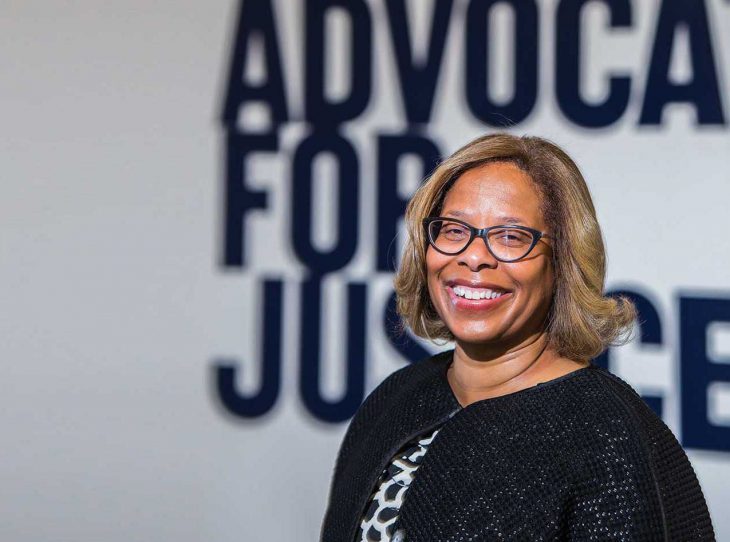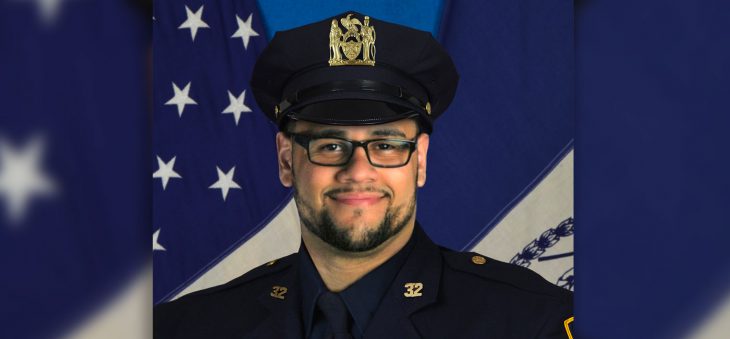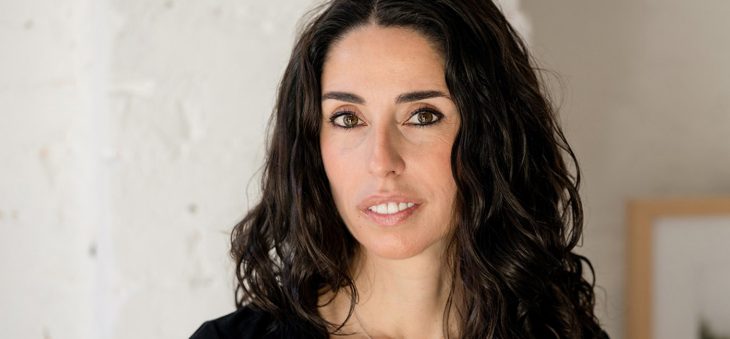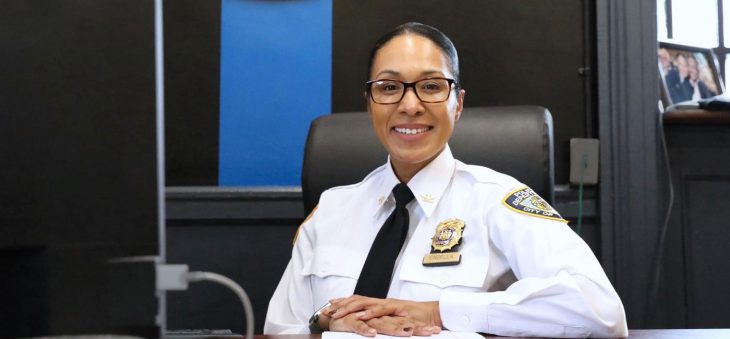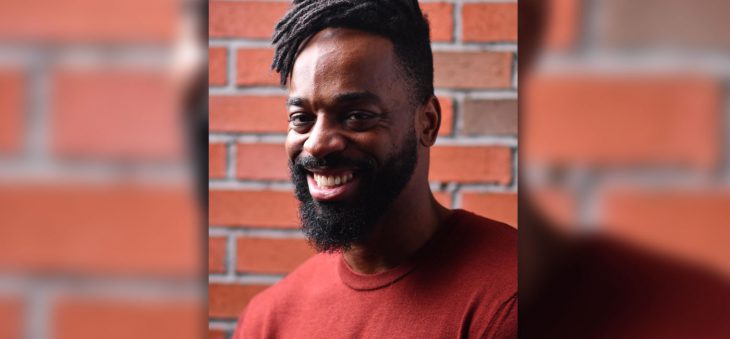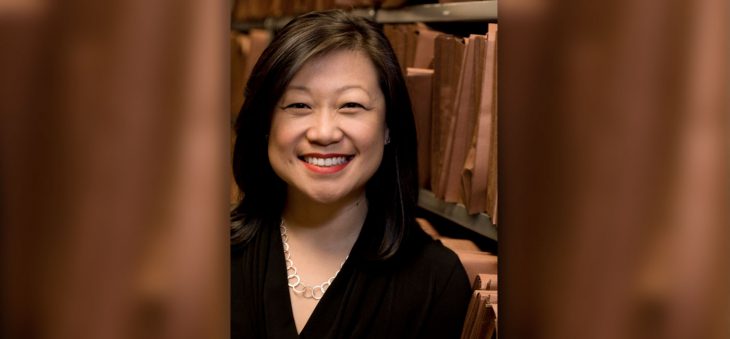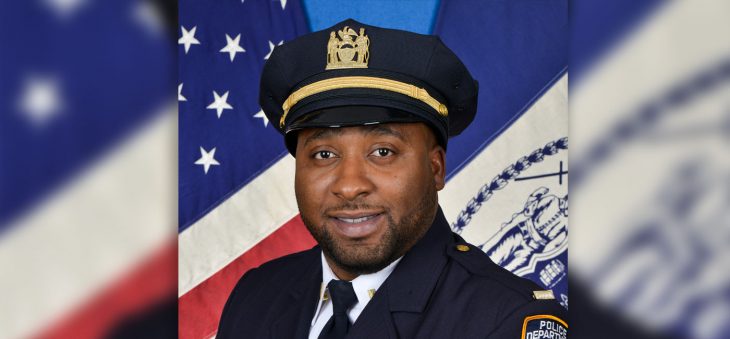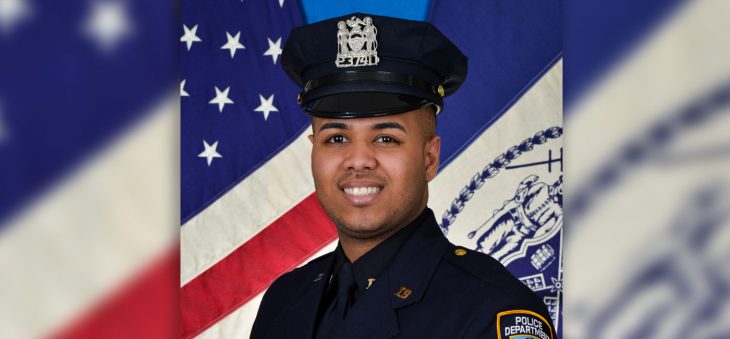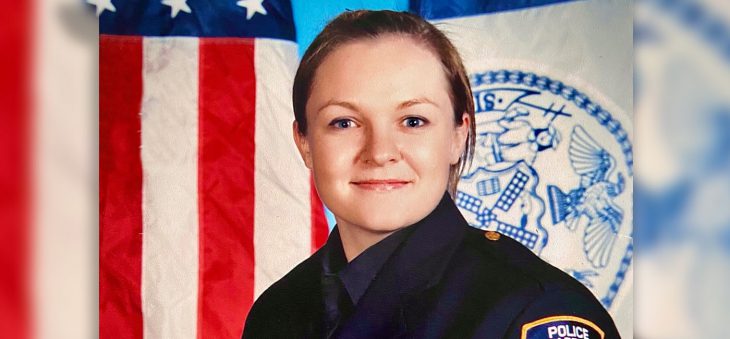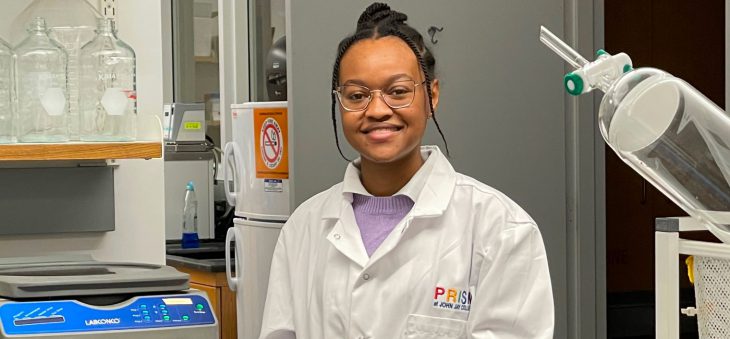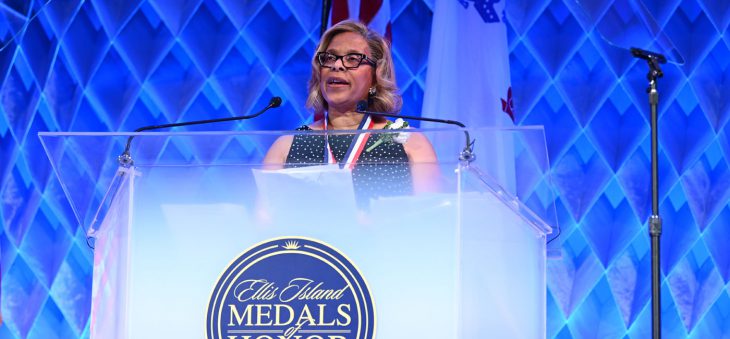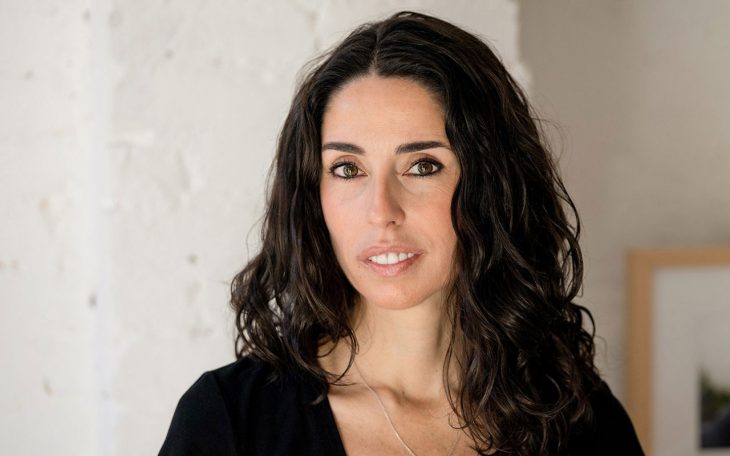The new Completion for Upper-division Students Program (CUSP) supports seniors with 90-plus credits, removing any obstacles blocking their pathway to success.
By Mary Anderson
She didn’t know it as she stood in line at Starbucks in the summer of 2018, but Rosemarie Siri was about to get meaningful help to graduate. A then-senior, with 90-plus credits, Siri had managed to register for fall courses but was pondering how she was going to afford the tuition for winter registration. “My TAP [Tuition Assistance Program grant] money had run out, and I was trying to figure out how to pay out of pocket,” recalls Siri. Waiting for her coffee order, she bumped into Sumaya Villanueva, Ph.D., the College’s Assistant Provost of Academic Engagement—one of the key people who would be assisting Siri and hundreds of her fellow classmates as part of a new initiative they would soon know as CUSP, or the Completion for Upper-division Students Program.
But this story begins some two and half years earlier in the office of Dean of Undergraduate Studies Dara Byrne, Ph.D., who was looking over data on completion rates at the College. Byrne also serves as the Associate Provost for Undergraduate Retention and was taken by the fact that a number of students with 90-plus credits were leaving the College before earning the 120 credits needed to graduate. “There was no easy way to tell the difference between a stop out [temporary withdrawal] or a drop out, and none of our available data showed whether students ever return to complete their degree,” she says. That was the issue that would launch Byrne to seek funding for a systematic way to the answer. And so, the College—thanks to sponsorship by the MasterCard Center for Inclusive Growth and support from the Robin Hood Foundation—put the inquiry to DataKind, a mission-driven network of data scientists which takes on projects with social impact. By Spring 2017, DataKind had analyzed more than 10 years of student data to paint a picture of which factors make those at the crucial 90-credit tipping point more apt to drop out. “The collaboration between MasterCard and Robin Hood allowed us to work closely with DataKind, an incredible data analytics firm. They introduced us to new methods of statistical analysis, developing the custom, open source predictive analytics tool that is at the center of the CUSP intervention,” says Byrne. The tool would allow Ric Anzaldua, Ph.D., John Jay’s Director of Institutional Research, to generate completion risk scores for the 2018-2019 class of rising seniors. A generous multi-year grant of nearly $800,000 from the Price Family Foundation meant the College could fund a core team of staff and faculty to work intensively with at-risk seniors to move them closer to graduating. CUSP was officially under way.
“The question was, what common thread is there, if any?” says Cassandra Evans, Ph.D., the Program Manager for CUSP who was recruited by Villanueva to help lead the student outreach when the results came in. “They found that a number of factors can impact graduation and it was not just whether a student ran out of money.” For instance, there was what Evans calls “inconsistent credit accumulation”: If a student took a full 15 or 18 credits in one semester and then took an entire semester off, the DataKind algorithm showed they were more likely to stop or drop out. In its first year, the tool has analyzed roughly 1,114 advanced-credit students to identify students who were most at-risk of stop-out or drop-out. Through targeted and strategic interventions, John Jay has already helped 818 of those students graduate over one year, or approximately 73 percent, compared to a projected graduation rate of 54 percent over two years for similar students without the tool and interventions. “By identifying these high-risk students, the predictive tool made it possible to direct our resources to where they would be most impactful,” says Villanueva. It was that shortlist—along with those students who had not yet enrolled for the fall—that Evans and Villanueva dug into during the summer of 2018. “That’s who we were calling actively prior to classes starting because we thought, this is where we can make an immediate impact,” says Villanueva.
Even as the two worked the phones, along with CUSP Senior Academic Advisor Dana Prieto, to counsel those students, the College placed an advisement hold on their accounts. It meant that there was no way around it: If you wanted to register for classes, you had to first talk to a CUSP advisor. “They were somewhat annoyed at us for placing a hold on their accounts,” Villanueva concedes. “But once we got them, whether in person or by phone, they were all really grateful for having the opportunity to sit with somebody and have a specific plan on how to complete their degree.”
The meetings were just as illuminating for the advisors. “A lot of the feedback we’re getting from students is, ‘I never knew that anyone was there to celebrate me as a senior,’” says Evans. There was the Honors student-turned-firefighter who left just shy of his degree to start his career at the FDNY; he was convinced to wrap up his remaining credits and graduated this past spring. There were the Computer Science majors who thought they had it all figured out but learned from their advisor that the two computer classes they needed were only available in the fall. Catching their mistake meant they could graduate in the spring as planned rather than having to wait to make up those credits the following fall.
And then there’s Rosemarie Siri. That day at the Starbucks, Villanueva warmly greeted her former student from freshman year and asked how she was doing. At the time, Siri was commuting to John Jay’s Midtown West campus from Yonkers and also working a job at night to pay her expenses. Villanueva told her about the CUSP program and even offered her a part-time position in the CUSP office as an assistant. But more than the extra paycheck, CUSP made a big difference by helping Siri with a grant to defray the cost of that winter session she was working to afford.
“What’s been nice about the Price Family Foundation funding is that they also gave us resources so that we could offer students help to pay their balances,” says Evans. “If a student hasn’t paid their bill after a while, they can’t register for any classes. Let’s say they owe $3,000 or even $1,000 and that balance has stood in the way of them just taking three to six credits to finish their bachelor’s degree. That’s powerful to be able to reach out to them and say, ‘We have this onetime opportunity to pay your bill in full.’” Considering the earning power that having a college degree confers, that $1,000 can be the pivotal factor in lifetime success.
“Given the time and effort these students have already put into their college education and the overall cost of college, paying off a final bill in order to allow students to graduate is a relatively small financial investment. But probably more important and impactful is the personal attention that helps them navigate a complex system that often doesn’t take personal challenges into account,” says Joanne Duhl, Executive Director of the Price Family Foundation. “We hope that John Jay, and the entire CUNY system, can use CUSP to understand how important it is to develop and implement systems that support their students to get to the finish line.”
Indeed, the effect of this targeted approach has been immediately evident: By May 2019, 66 percent of the 200-plus students identified as high risk had graduated; by September, that preliminary number increased to 73 percent.
Now in its second year, the CUSP program is expanding its approach, leveraging more existing resources at the College to step up its touch points. “This year we hosted a ‘Welcome to your senior year’ event,” says Villanueva. “We had representatives from various offices such as Alumni Relations, The Center for Career and Professional Development, and The Office for Transitions—they’re the ones who organize all the events related to graduation itself—all share information with our seniors about things that would be important for them to be aware of as they prepare for this last year.” More than 60 CUSP Cohort Two seniors short-listed by the DataKind algorithm attended the event.
One of those seniors who showed up for the event was Stephan Howell, who is majoring in International Criminal Justice. Howell was a transfer student from the New York College of Technology and admittedly had been wondering about how to map out his remaining credits. “When CUSP reached out to me I was excited because they offer advisement and resources to help seniors successfully finish their degrees and then go onto their careers,” says Howell. “I’m currently a Police Cadet and once I graduate from John Jay, I’ll be in the Police Academy. It’s because of the direction and support that I’ve received during my time at the College that I feel prepared to go into law enforcement.”
CUSP has also strategically partnered with these offices and others to reserve seats for its seniors at existing events such as internship preparation, resume and cover letter reviews, and interviewing skills. It was a range of messaging tools to get the word out and remind them of important deadlines. Results show that a much higher number of students are booking appointments with CUSP advisors at an earlier time.
These interventions have had a potent ripple effect, especially considering that it was achieved with just three dedicated full-time CUSP advisors—Evans, Prieto, and financial aid advisor Bryan Wells—and one part-time student worker. “In addition to the predictive data analysis tool, my take,” says Villanueva, “is that the secret sauce to CUSP’s success is also having staff members who are looking after particular groups of students on a consistent basis.”
Rosemarie Siri would agree. “The CUSP office definitely led me in the right direction,” says Siri, who graduated with a degree in Criminal Justice. “I would go to Cassandra and Dana for advice and they encouraged me, since I had fulfilled the requirements of my major, to try electives outside my field.” One such elective centered on women and the law. “I ended up loving it and thinking I wouldn’t mind doing something like this after I graduated,” she says. Siri now works at a law firm in downtown Manhattan as a medical case manager and is considering doing just that.
Illustration: Sandy Bandes

